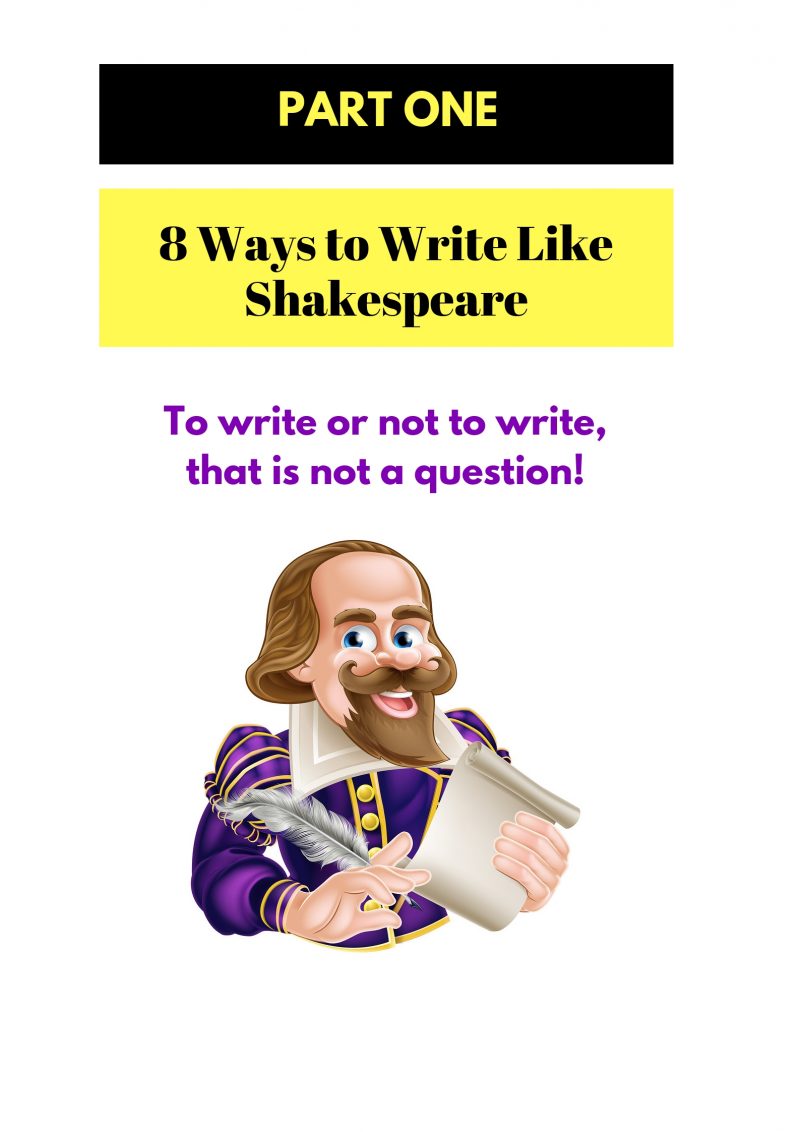The issue of profiling can be an inflammatory concept when applied in law enforcement, but the concept is regularly practiced in just about every other walk of life.
Prospective employees vying for a position at a company are categorized (profiled) by their experience, education, and references. First impressions mean a lot to the interviewer. Their personal appearance and demeanor are used to categorize them as a potential employee … or not, almost immediately.
And as an added element in the 21st century, how they interact, or don’t, on social media is an element of their profile.
Assuming the process of getting published is similar to applying for a job, the manner in which you go about connecting with people will establish your “profile” for agents, publishers and readers.
Whether it is meeting in person or simply over an email submission, most agents can identify someone who is not cut out for writing within a minute or two after a first impression. To experienced people, it is simple to identify writers who know how things work and those who don’t.
We can tell if you are self-focused or reader-focused. (There is a big difference.)
We can tell if you have an idea that will connect with a publisher.
But there are some other less-obvious things which are used to “profile” an author and either qualify or disqualify them for writing books:
- Writing ability: A number of aspiring authors have what it takes with first impressions, but are good writers, not great writers. The focus on platform has given the impression writing is secondary. It is more like “1A” and “1B.”
- Collaborative ability: Some really good aspiring authors have everything going for them; but when someone tries to edit their work, the fangs come out and the real author is revealed. The ability to work well with others is a necessary art form, even in the 21st-century tech world.
- Administrative ability: Some really good authors have no ability to manage their time and hit deadlines, are unresponsive to communication, have constant problems with their computers, and make it difficult for everyone involved in the process. Authors need both hemispheres of their brain to be firing properly if they want to be successful. Don’t ignore the boring stuff.
- Relational ability: If there ever were an example of a “people” business, it is publishing. Just as you would handle personal relationships with wisdom, love, and great care, so, too, are the relationships in business. The more bridges you burn, the more you will find yourself isolated on an island.
- Competitive ability: We can tell if you have what it takes to compete in an industry that is highly competitive.
- Humility: You never know what success will do to you. For some, it gives them a greater sense of God’s blessing; for others, a suffocating sense of self-importance. You can decide now which path you will take.
Most people do not live their lives thinking about the legacy profile they will leave. Even followers of Christ can find themselves in a place focused on self and a view of “ministry,” which is more about their personal fulfillment, not for discipling others.
Some ministries have been derailed when those involved lose their way and consider programs and processes more important than people.
So, too, can authors view their work and their desires to be more important than people. Unfortunately, there are authors who consider their mission more important than anything else.
So, decide this day what type of “profile” you would like to maintain.
Do you want to be viewed as an author who works well with people, considers others more important than themselves, thinks long term, and goes the extra mile to make things work well for everyone?
If so, there’s no better time to start than right now.



 Rumbles in CBA
Rumbles in CBA

Being judicious is a virtue. I try to keep myself unencumbered and this is a great gauge to measure by. Thanks for giving us all food for thought.
My “legacy profile.” Not just as a writer, but as a Christian. Lately, I’ve been conscious of the legacy I leave for my grandchildren. I want them to know that I love them, yes. But I want them to remember that I loved God most.
Great post. It’s so easy to get self-important when we’re we’re trying to prove ourselves.
It recently occurred to me how much of my hustle throughout my life has been an effort to prove my worth to people who might never even notice. Recognizing and relinquishing that goal gave me such freedom to just serve, even if I never sufficiently “prove myself.”
If I want to experience the power of His resurrection I must also expect the fellowship of his sufferings. It’s a package deal, and the sooner I accept it, the sooner I become usable. I hope I can learn to accept it soon!
In a world of endless hashtags,
will I be my own reward?
Will my books in a million handbags
only serve to push me toward
a love of self where character sags
like a matador cruelly gored
by the the mad bull, my bloody rags
of honour unprotected by a feeble sword
waved by a disinterested hand that lags
this engine of my doom, a heart become bored
with the concerns of Christ, the care for others
who were meant to be my strength as brothers?
I love this, Andrew! And it’s good to see you back here!
Great post, Dan. It really helps a writer to keep their focus on the higher calling, serving our Lord in whatever we do, and honoring Him with how we live.
Thanks, Jaime!
Amen, well said. Humility is sometimes a harsh reminder until we know to Whom we belong.
It sure is, Claire.
Thanks for giving us valuable insight regarding author profiling. I reread this post a few times. You covered several thought-provoking topics on this subject. The list of less-obvious things used to profile a writer’s abilities has tons of food for thought. This post not only left me with a greater desire to grow in humility, wisdom, selflessness, and knowledge, it’s a good reminder of how God’s plan is more important than mine. He’s helping me build my legacy profile. While my writing successes and failures are important to me, they don’t define me. It’s all an opportunity to learn and work harder. I totally agree with your points about first impressions, but every once in a while, for no specific reason, we stumble and fall flat on our faces. It recently happened to me. Sometimes all we can do is let it go. We hope and pray the person sitting across from us sees beyond our not so perfect pitch or interview.
Thanks for this great post, Dan. It’s so easy to get lost in “my book,” “my work,”, “my talent,” “my [fill in the blank],” and forget that it is all a gracious gift from God to be humbly used for His glory.
I confess that I need this kind of reminder to stay on the narrow path. Please keep it up!
Thank you for the information in this post. Please would you explain self-focused v reader-focused in more detail … what exactly is it you notice that stands out and separates the two? I’d appreciate knowing a little more on what that looks like. Thanks.
There are a couple levels of this, one simple, one complex.
Simple – If the most common word used is “I” then the book is all about the author. I searched a manuscript once and the word came up a couple thousand times. Yikes.
Complex – The story is about the author, is all about the author’s approach to life, things the author saw, opinions of the author. I am waiting for some benefit to the reader other than being allowed to sit at the feet of the author.
There needs to be a benefit for the reader. No benefit, no reader.
Great! Your explanation helps. I’ve often wondered about this aspect of writing but have been unclear in regard to its practical application. Thank you!
Super blog posting, Dan. Thanks for sharing information that should be obvious but isn’t always!
Mercy. I was posting a comment and it disappeared. Well, lemme sum up.
I,I,I,I. Eventually when God shakes us up, brings us back, we can share flaws that may reflect us. Especially in a first novel.
Rejections, waiting, requests for massive edits… did I mention waiting? These bro g us patience, humility,and understanding. What if He was shaking me and that was His purpose? What of we really want a work to be on the shelf? What if His reason was simply calling us back and share His Word?
That is humbling. Last night I was breezing through social media and it stuck me (hard) how many authors are out there. I was discouraged. Told me… it’s not about me. Now, whatever the outcome, how will I glorify Him, and not me? Pray. Praise.
Autocorrect… which didn’t work. These bring us.. not ‘brog e’
Sigh
Dan,
Have you ever seen Smile’s PRID All Natural Drawing Salve? It comes in an old-fashioned little round orange tin that’s often difficult to open, and it has a fragrance (odor?) that takes some getting-used-to. The salve is so stiff I have to scrape it out and smear it on, with some difficulty, to apply it, instead of just easily dipping in a finger; but it works wonders. Whenever I get a splinter, sticker, thorn or ingrown nail, I apply some PRID. Application is a bit painful because of how unyielding the consistency of the product is, but if I let it do its work, the soreness is gone almost immediately and the offender soon works its way out without the need for digging into my flesh with a needle and tweezers. There’s no scar. It works every time.
Your post today was a lot like PRID for the goads in a writer’s mind and spirit. Thank you.
Excellent!
I read all the way through your comment thinking that PRID was an allegory for pride and couldn’t figure it out at all. Finally at the end of the comment I realized it is an actual product.
Dan, you all post such meaty information; thank you! If authors read what you and others in your agency post, they (we) should have a leg up after a while.
The most important take-away that I gleaned from my one-on-one interview with an agent at a writers’ conference was just what you mentioned. He said, “Readers go into a book store thinking, ‘I have a need. How will this book meet my need?'” That gold nugget helped me change my approach to writing for the better.
Thanks again, and blessings to you.
Thank you so much for this reminder! Sometimes we forget how our simplest actions either honor or embarrass our Lord.
Well, well, everyone commenting seems to have been braced and inspired by this post. My reaction is, “Well, I guess I’d better hang up my typewriter.”
“Some ministries have been derailed when those involved lose their way and consider programs and processes more important than people.”
I have certainly seen this happen. We get enamored of an Idea and we roll right over people and common sense. I have done it, and have had it done to me.
“If there ever were an example of a “people” business, it is publishing.”
How does this work with the fact that many authors are introverts and/or weird and awkward? I care a lot about every relationship I find myself in, but it has taken me 40 years to tame my awkward social instincts. Is this, then, the kiss of death?
Jennifer
I have terrible fear of speaking. Socially awkward doesn’t even come close to me. Once upon a time in a galaxy far away, someone voted me as student vice president for this very reason.
I had to make speeches. Put social situations together. After a time, it became easy. But as years and time passed, I am back to ‘socially awkward wallflower, knee-knocking blabbering idiot.’
Hear you loud and clear. Many of these things I feel, and wonder, should I hang up the typewriter too?
That wouldn’t be true to either of us. We have to work at these just as we do the craft. Sigh. But it’s not the kiss of death. What happens in ten, twenty years when we’ve given up, and wondered… what if?
You are so right, Claire. Thank you for the word of encouragement.
Actually, looking closely at Dan’s post, I think he is warning us against being abrasive and insensitive, which are not things that we anxious types tend to be, except briefly by accident. So, in the long game, I think we are OK.
But I kinda wanted to hear him say so. 🙂
It seems he is describing an Ideal Author, who is all things to all men. Start describing the ideal [whatever job], and you end up with a perfectly rounded person with perfect character, right?
You are right!
Hmm. Does make one think. Our characters have to have flaws or they are not interesting.
Remember Barbie dolls? I hated them. They had it all. They were everything I was not: blonde, blue-eyed, perfect body, hunky boyfriend, great wardrobe and car. As a pre-crime writer at the tender age of 6 I dismembered them, took Ken hostage and at which point, my mother decided I’d do much better with trolls…
I did.
It also shaped me into the weirdo I MEAN writer that I am. A romance/crime writer. On my ‘Romance’ Author FB page guess what I have?
Pictures of Barbie killing Ken in several methods. EEK. But she was the perfect woman! How could I do it? One, it was funny. Two, because she was perfect. I do not like perfect. Neither do readers. We are not perfect and that is okay, better than okay. We were fashioned by God’s hand. Now of course I am sure He squeezed His eyes shut at my pre-psychotic behavior but that’s completely beside the point…
Apparently some folks don’t see Barbie killing Ken as a romantic comedy crime page. I was put into FB jail for it. Seriously? I didn’t even have a trophy, c’mon!
My mother, rest her soul, would roll in her grave.
As for the perfect and ideal writer, we can try but you know we will never achieve perfection. Doesn’t mean it’s not what we reach for, but for a time, accept and embrace flaws, use them in your characters, and remember it’s a journey.
I think Bob would say we’re okay. So, I don’t know his mind, but I suspect this is just to make us wonder… what exactly are the flaws we have? What needs work?
Ha ha! I love it!
You should definitely watch Toy Story 3. It has a scene where Barbie “tortures” Ken by vandalizing his vintage wardrobe piece by piece … she tapes him to a tongue depressor first I believe. I might have made that last part up.
Love it. Then… is she cleaning up the dead Ken crime scene? Is his head somewhere else, like where Jeffery Dahmer might have put it?
Okay, I am really not quite that psycho. My husband’s still alive so that’s a good sign. And, he doesn’t seem to be worried about my browser history.
But he hasn’t seen my FB author page or pictures…
No, I hate to spoil it for you but she doesn’t kill him. Just his clothes.
Also, a beheaded Ken is not really that serious. At least when I was a kid, his head was fairly easy to put back on should it come off. Or maybe I am thinking of Barbie’s.
About your psycho tendencies … I was MUCH more bloodthirsty as a kid than I am now, in terms of my appetite for violence in stories and what it took to horrify me. My little heart was as small, hard, and weightless as a button. But years of living, having experiences, having kids, and being worked on by the Holy Spirit have softened me. I am now much more easily horrified. I’m thinking this a common human experience. So, I am not too worried about what you did to your Barbies as a kid. 🙂
lol
kids do interesting stuff…
The Holy Spirit softens our hearts, gives us compassion, empathy and the ability to nurture those around us, small and not so small (age-wise).
He also is great at nurturing our minds as writers in the various genres. Given we do not stray far from grace.
I know FB is weirded out by my Barbie kills Ken pictures, but I don’t think God is. After all, Jesus called for the flawed, the weak and the weird. That really cool wedding invitation given to the poor.